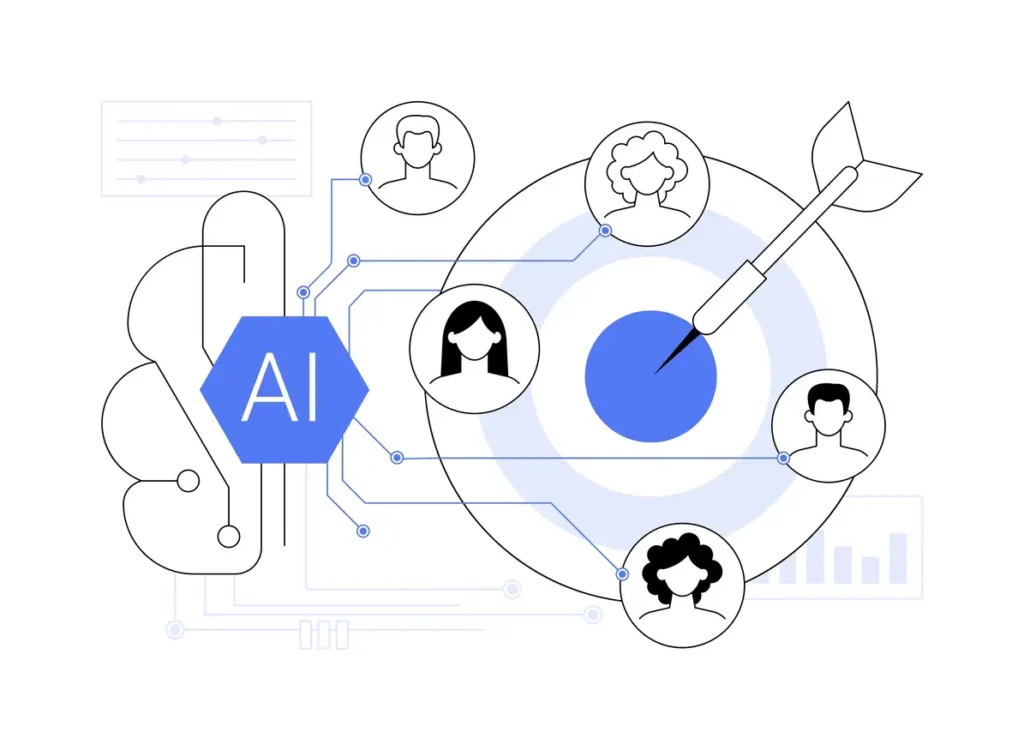The Future of B2B: Taking Advantage Of AI Automation to Drive Success
The landscape of B2B is changing as companies significantly turn to AI automation for strategic benefit. This makeover guarantees to boost efficiency and consumer interaction with advanced technologies. The integration of these tools is not without its difficulties. Recognizing just how businesses can browse this advancing surface will certainly be important for future success. What elements will figure out the performance of AI in this field? The answers may redefine conventional service designs.
Comprehending AI Automation in B2B
As services significantly look for performance, understanding AI automation in B2B becomes essential. AI automation refers to making use of expert system modern technologies to streamline and enhance service processes. In the B2B industry, this involves the integration of AI tools to manage jobs such as information analysis, customer communications, and supply chain operations. By leveraging device understanding and all-natural language processing, companies can boost precision, decrease human error, and quicken decision-making (B2B Growth Consulting). Additionally, AI automation promotes the handling of big quantities of data, enabling services to extract beneficial insights and optimize their operations. As companies navigate this technical landscape, a comprehensive grip of AI automation's abilities will certainly empower them to remain affordable and responsive to market needs
Key Advantages of AI Automation for Organizations
While numerous organizations grapple with boosting functional demands, AI automation presents various benefits that can noticeably enhance their performance. One substantial advantage is effectiveness; AI systems can execute repetitive tasks quicker and with better precision than humans, consequently reducing errors and freeing up staff members for even more strategic initiatives. Furthermore, AI automation allows data-driven decision-making by assessing substantial datasets quickly, providing insights that inform company approaches. Expense decrease is another key benefit, as automation reduces labor costs and optimizes resource allotment. AI can improve scalability, enabling companies to adapt to market adjustments swiftly. Ultimately, the integration of AI automation cultivates technology, allowing business to remain affordable in a swiftly evolving landscape.
Transforming Consumer Experiences With AI
AI is reshaping customer experiences by boosting and making it possible for personalized communications engagement. Via the application of predictive analytics, organizations can expect consumer requirements and choices, causing much more customized services. In addition, enhancing support procedures with AI technology boosts effectiveness and satisfaction, inevitably transforming the general customer journey.
Customized Communications and Interaction
Personalized interactions have actually become a keystone of effective consumer engagement in the B2B landscape. By leveraging AI-driven options, businesses can customize their interaction and offerings to meet the special demands of each client. Automated systems evaluate consumer data, preferences, and actions, making it possible for companies to develop customized experiences that resonate with their audience. This level of customization not just boosts consumer satisfaction however likewise cultivates lasting commitment. Additionally, AI tools facilitate real-time interactions, enabling services to react without delay and properly to questions and responses. As an outcome, firms can construct more powerful connections with customers, making certain that their solutions straighten with advancing assumptions. Eventually, individualized interaction via AI results in boosted results and sustained success in the affordable B2B market.
Predictive Analytics Implementation
As businesses significantly seek to enhance client experiences, executing anticipating analytics has become a critical technique in the B2B field. By leveraging data-driven understandings, organizations can expect customer requirements and preferences, allowing them to customize their offerings much more properly. Predictive analytics makes use of historical information and sophisticated formulas to anticipate future habits, permitting companies to recognize potential difficulties and possibilities. This positive approach not only boosts customer fulfillment but likewise promotes commitment by supplying pertinent and prompt solutions. Furthermore, anticipating analytics aids in resource allotment, ensuring that advertising initiatives are focused on high-value prospects. Ultimately, the combination of predictive analytics equips B2B firms with the devices essential to change customer communications and drive long-term success in an increasingly competitive landscape.
Enhancing Support Procedures
Enhancing consumer experiences in the B2B sector extends beyond predictive analytics; streamlining support processes plays a vital function. By incorporating AI-driven options, services can enhance and automate routine questions feedback times, causing increased client contentment. Chatbots and online assistants offer 24/7 support, dealing with client requires without delay and lowering the problem on human agents. This automation allows groups to concentrate on complicated concerns, promoting more meaningful communications. Additionally, AI tools can analyze assistance data to identify trends and locations for enhancement, guaranteeing continuous improvement of service top quality. As organizations take on these innovations, they place themselves as customer-centric and receptive, eventually driving commitment and company development in an increasingly affordable landscape.
Enhancing Workflow and Processes
Simplifying operations and procedures in B2B environments is crucial for improving overall effectiveness. By maximizing workflow effectiveness and automating regular tasks, companies can lower hands-on mistakes and maximize beneficial resources. This shift not just boosts efficiency however additionally enables teams to concentrate on strategic efforts that drive development.
Maximizing Workflow Effectiveness
Enhancing operations effectiveness is crucial for companies seeking to improve and reduce operational expenses performance. By assessing existing procedures, companies can identify traffic jams and redundancies that hinder performance. Implementing streamlined treatments boosts communication and partnership amongst groups, ensuring that tasks are completed more promptly. Making use of data-driven understandings allows business to make educated decisions that refine procedures additionally. Furthermore, embracing integrated innovations can help with seamless details circulation, lessening the danger of mistakes and hold-ups. As businesses welcome these modifications, they not only foster an extra dexterous job atmosphere however also place themselves to react rapidly to market demands - Growth Systems For B2B. Eventually, concentrating on workflow performance enables organizations to allot sources efficiently, driving lasting success in a significantly competitive landscape
Automating Regular Jobs
Numerous companies are progressively transforming to automation to manage routine jobs, recognizing its possible to significantly boost functional effectiveness. By releasing AI-driven services, firms can improve recurring activities such as information entry, invoice handling, and customer queries. This change not only minimizes human error however also liberates beneficial worker time, allowing personnel to concentrate on value-added tasks and tactical campaigns. Additionally, automation can enhance response times and service uniformity, causing boosted consumer fulfillment. As businesses navigate an affordable landscape, leveraging automation for regular tasks comes to be important for enhancing operations and keeping agility. Inevitably, this approach fosters development and drives growth, positioning organizations for long-lasting success in the advancing B2B setting.
Enhancing Decision-Making Through Data Insights

Getting Over Challenges in AI Execution
AI implementation holds the pledge of substantial operational enhancements, organizations usually face a myriad of difficulties that can impede progression. Key obstacles include data top quality concerns, as many business fight with incomplete or inconsistent datasets required for efficient AI training. Furthermore, resistance to alter within the labor force can restrain the fostering of AI modern technologies, as workers might be afraid work variation or do not have the essential abilities. Spending plan restraints additionally offer an obstacle, restricting financial investment in the called for framework and ability. In addition, incorporating AI systems with existing procedures can be complicated, demanding considerable time and resources. Getting rid of these obstacles requires a tactical method that includes comprehensive training, change monitoring, and a commitment to continual enhancement in AI initiatives.
Future Trends: The Following Frontier in B2B Automation
While the landscape of B2B automation remains to develop, arising patterns are poised to redefine how companies operate. The combination of sophisticated expert system will certainly promote extra tailored consumer experiences, enabling services to customize solutions specifically to client demands. Additionally, the rise of anticipating analytics will make it possible for organizations to prepare for market shifts and enhance decision-making processes. Automation of routine jobs with robotic procedure automation (RPA) will boost efficiency, minimizing functional costs substantially. Additionally, the adoption of blockchain modern technology promises enhanced openness and safety and security in purchases. As these innovations gain traction, business will increasingly leverage AI-driven understandings to cultivate collaboration, improve supply chains, and improve total productivity, marking a transformative shift in the B2B landscape.
Often Asked Inquiries
What Sorts Of Companies Can Benefit A Lot Of From AI Automation?
Production, logistics, and client service organizations can profit most from AI automation. These markets boost functional performance, reduce costs, and improve customer interactions, eventually causing boosted performance and productivity in an open market.
How Can Small Businesses Execute AI Automation Efficiently?
Small companies can execute AI automation efficiently by identifying recurring jobs, picking easy to use tools, guaranteeing sufficient training for employees, and gradually incorporating remedies to enhance process while keeping track of efficiency and changing strategies based on comments.
What Prevail Mistaken Beliefs Concerning AI in B2B?
Typical misunderstandings about AI in B2B consist of the belief that it is just for huge ventures, that it ensures instant outcomes, and that it can fully change human decision-making instead of augmenting it. Growth Systems For B2B.
Exactly How Does AI Automation Effect Employee Responsibilities and Task Security?
AI automation additional hints improves employee duties by enhancing repeated jobs, promoting effectiveness and technology. While some concern job loss, it usually produces possibilities for upskilling and new placements, ultimately improving job safety via added worth and productivity.
What Skills Are Required to Manage AI Automation Projects?

As organizations increasingly seek effectiveness, comprehending AI automation in B2B ends up being crucial. AI automation facilitates the handling of large volumes of data, allowing services to remove beneficial understandings and maximize their procedures. While several organizations grapple with raising functional needs, AI automation provides numerous advantages that can considerably enhance their performance. Automation of routine tasks through robot procedure automation (RPA) will certainly improve effectiveness, decreasing operational costs considerably. Production, logistics, and consumer solution businesses can benefit most from AI automation.